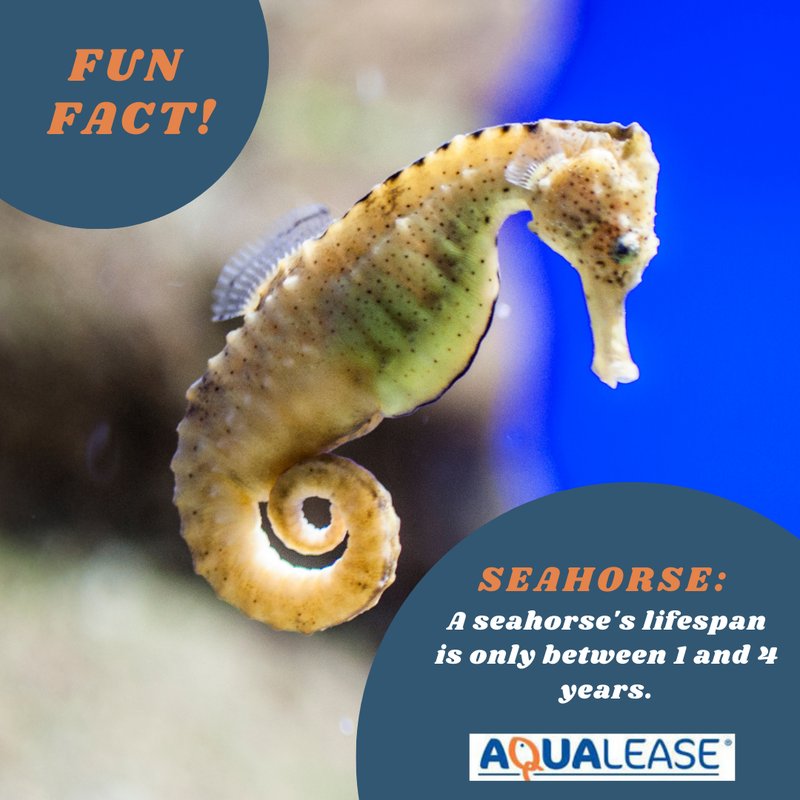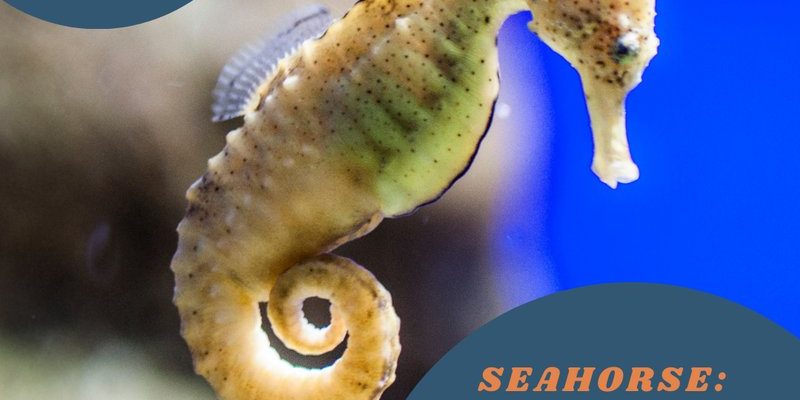
In the wild, seahorses face various challenges, from predators to environmental changes. However, when kept in aquariums, you have the ability to provide a stable environment that can potentially extend their lifespan. Imagine taking a plant from the wild and putting it in a pot at home; with proper care, it might thrive for years. The same goes for seahorses, but you’ll need to ensure you understand their needs to really make that happen.
The Lifespan of Wild Seahorses
In the wild, seahorses typically live around 1 to 5 years. Some species have been noted to reach a maximum age of up to 7 years, but that’s quite rare. Their lifespan can be heavily influenced by factors like habitat quality, availability of food, and threats from predators. For example, a seahorse living in a healthy coral reef ecosystem with plenty of food sources might live longer than one in a polluted or overfished area.
Interestingly, the smallest species, like the *Hippocampus zosterae*, generally have shorter lifespans, while larger species, such as the *Hippocampus reidi*, tend to live longer. This can be likened to the differences in lifespan between small dog breeds and large dog breeds; generally, smaller breeds tend to live longer.
How Lifespan Differs in Aquariums
In aquariums, seahorses can live longer than they do in the wild. While it’s not unusual for them to live up to 5 years in captivity, some well-cared-for individuals have been known to live over a decade. Imagine that! With a dedicated aquarist who understands their requirements, these captivating creatures can thrive in a safe, controlled environment.
Providing a balanced diet, maintaining optimal water conditions, and keeping tank mates compatible can significantly lengthen their lifespan. Think of it as giving them a cozy home where they can feel secure and well-fed. If you’re thinking about setting up an aquarium, you might want to consider all these factors right from the start to ensure a long and healthy life for your seahorses.
Factors Influencing Lifespan in Captivity
There are several factors that can influence how long seahorses live in an aquarium setting. Let’s dive into some of the most significant ones:
- Water Quality: Keeping the water clean and at the right temperature is crucial. Seahorses thrive in stable conditions with appropriate salinity and pH levels, much like humans prefer a comfortable room temperature.
- Diet: Proper nutrition plays a vital role. Seahorses primarily eat small live foods like brine shrimp and copepods. A varied diet ensures they get the necessary vitamins and nutrients to stay healthy.
- Tank Size: The size of the aquarium matters. A larger tank provides more room for swimming and reduces stress. Stress can significantly affect health and longevity, just like it does in any other living being.
- Compatibility: Choose tank mates wisely. Seahorses can be sensitive and may not do well with aggressive fish. A peaceful environment fosters a sense of security.
Each of these factors works together to create a thriving environment. If you neglect one aspect, it could impact their health and lifespan negatively. Think of it as piecing together a puzzle; each piece is essential for the complete picture.
Best Practices for Seahorse Care
If you’re serious about ensuring your seahorses live long, there are best practices you’ll want to follow. Let’s break down a few key actions that will make a world of difference:
- Regular Maintenance: Perform routine checks of the water quality and clean the tank regularly. Think of this as a deep clean for your home—keeping it tidy helps everyone feel better.
- Feeding Schedule: Create a consistent feeding schedule. Seahorses are grazers, so feeding them small amounts several times a day can mimic their natural feeding habits.
- Observation: Keep an eye on their behavior. If they seem lethargic, aren’t eating, or display unusual signs, it’s essential to address these issues promptly. Trust your instincts!
- Research: Understand the specific species of seahorses you have. Different species may have varying needs regarding water temperature and dietary preferences.
By following these best practices, you’re setting your seahorses up for success. Just like with any pet, the more effort you put in, the more rewarding the experience becomes.
Common Health Issues and Their Impact on Lifespan
Even with proper care, seahorses can encounter health issues that may shorten their lifespan. Understanding these common problems can help you act sooner rather than later.
– Swim Bladder Disorders: This condition can prevent seahorses from swimming properly, leading to stress and difficulty feeding. It’s like if we suddenly lost the ability to walk. Monitoring their swimming patterns is essential.
– Parasitic Infections: Seahorses can fall prey to parasites, especially if their tank mates aren’t healthy. These infections can quickly spiral out of control if not treated.
– Poor Nutrition: If they aren’t getting enough food or the right nutrients, their immune systems can weaken. This makes them susceptible to diseases. Remember, you are what you eat!
Dealing with these health concerns promptly often makes a significant difference in their overall lifespan. Don’t hesitate to consult an expert if you notice any signs of illness.
Choosing the Right Species for Your Aquarium
When picking seahorses for your aquarium, it’s essential to choose the right species that fit your experience level and tank setup. Some species are hardier and more adaptable, making them better choices for beginners.
For instance, the *Hippocampus reidi* is known for its resilience in captivity, while the *Hippocampus erectus* is relatively easy to care for and is often recommended for new aquarists. On the other hand, species like the *Hippocampus bargibanti* may require more specialized care, making them better suited for experienced hobbyists.
Choosing the right seahorse species not only enhances your success in keeping them but also improves the chances of a longer lifespan. You want to ensure you’re set up for success right from the start.
Final Thoughts on Seahorse Lifespan
Understanding how long seahorses live, especially in aquariums, is a key part of ensuring a fulfilling experience for both you and these fascinating creatures. With proper care, you can help them thrive for several years, creating a captivating aquarium centerpiece. It’s all about the little things—maintaining clean water, providing a nutritious diet, and ensuring a peaceful environment.
So, if you’re ready to embark on this journey, remember that seahorses are not just fish; they’re unique pets that require your attention and love. By prioritizing their needs, you’re not just keeping them alive; you’re allowing them to flourish. Happy fishkeeping!

